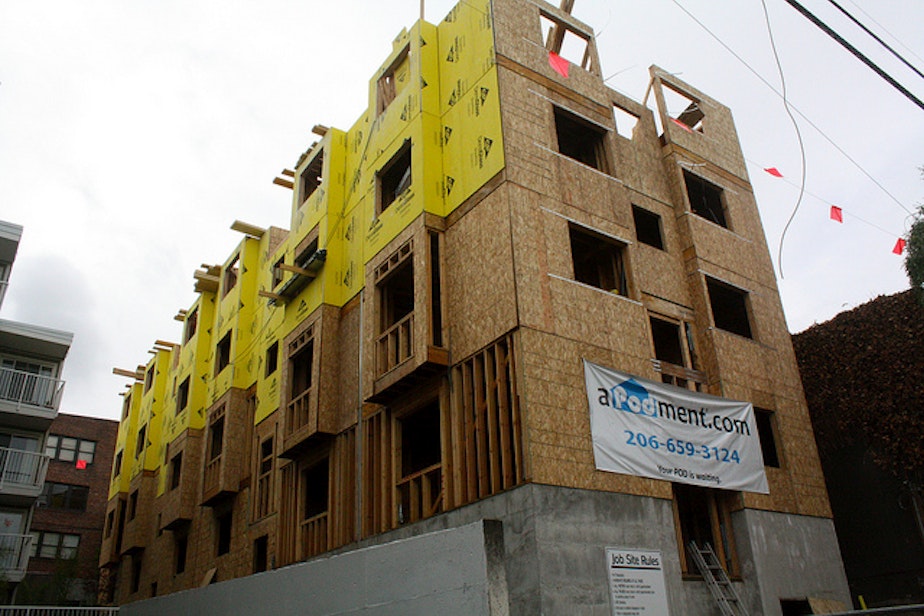Look Out Seattle Developers: Apodments Face New Regulations

Developers who build tiny apartments in Seattle may soon be working under a new set of city rules.
The Seattle City Council gave initial approval Tuesday to a host of new regulations that would govern everything from the minimum size of units to bicycle and car parking requirements.
Known as micro-housing or by the trade name aPodments, the apartments have sprung up around the city in recent years, most notably in the University District, Ballard and Capitol Hill. According to city planners, they average about 150 square feet and typically consist of individual sleeping rooms around a common kitchen. Sixty projects are currently completed or under construction.
Residents have complained the buildings bring too many people and too much density to neighborhoods. Because of a loophole in city zoning rules, the developments are not required to undergo design review, so there is no requirement to provide advance notice to residents.
The City Council’s Planning, Land Use and Sustainability Committee on Tuesday passed regulations that would set 220 square feet as the minimum size for what the city will now refer to as “small efficiency unit.” The units must have a bathroom and kitchen area, two sinks, and would require parking for bicycles, and in some cases, cars.
Dorm-like developments, now referred to as “congregate housing,” where sleeping rooms surround a common kitchen, would be restricted to high-density neighborhoods only.
Linda Melvin, a neighborhood activist in Ballard, said residents pushed for even tougher regulations, but she is generally pleased with the result.
“Parking is still a major issue, infrastructure in general is a major issue, but this is a step along the way,” said Melvin. “They have all made this a much better deal for Seattle citizens.”
Developers said the new rules will make it harder to build new micro-housing, which they argue provide affordable living spaces to thousands of Seattle residents.
“It will impose a bunch of requirements that are going to drive up cost and price and make this product infeasible in many cases,” said Roger Valdez, director of Smart Growth Seattle, which represents micro-housing developers.
According to Valdez, micro-housing developments sell out quickly because there is high demand from tenants who don’t want to spend a lot on housing and who don’t mind smaller spaces. He said the new regulations will result in higher rents.
City Councilmember Mike O’Brien presided over more than a year of debate about the new regulations.
On Tuesday, O’Brien failed to beat back a round of amendments supported by neighborhoods that added more regulations to his proposal. Even though it wasn’t the exact piece of legislation he wanted, he said he would support it.
“This piece of legislation is a balance between allowing a housing type that has provided some level of affordability and more options for folks with some of the concerns about the impact on neighborhoods,” he said.
The full council will vote on the regulations in two weeks.

